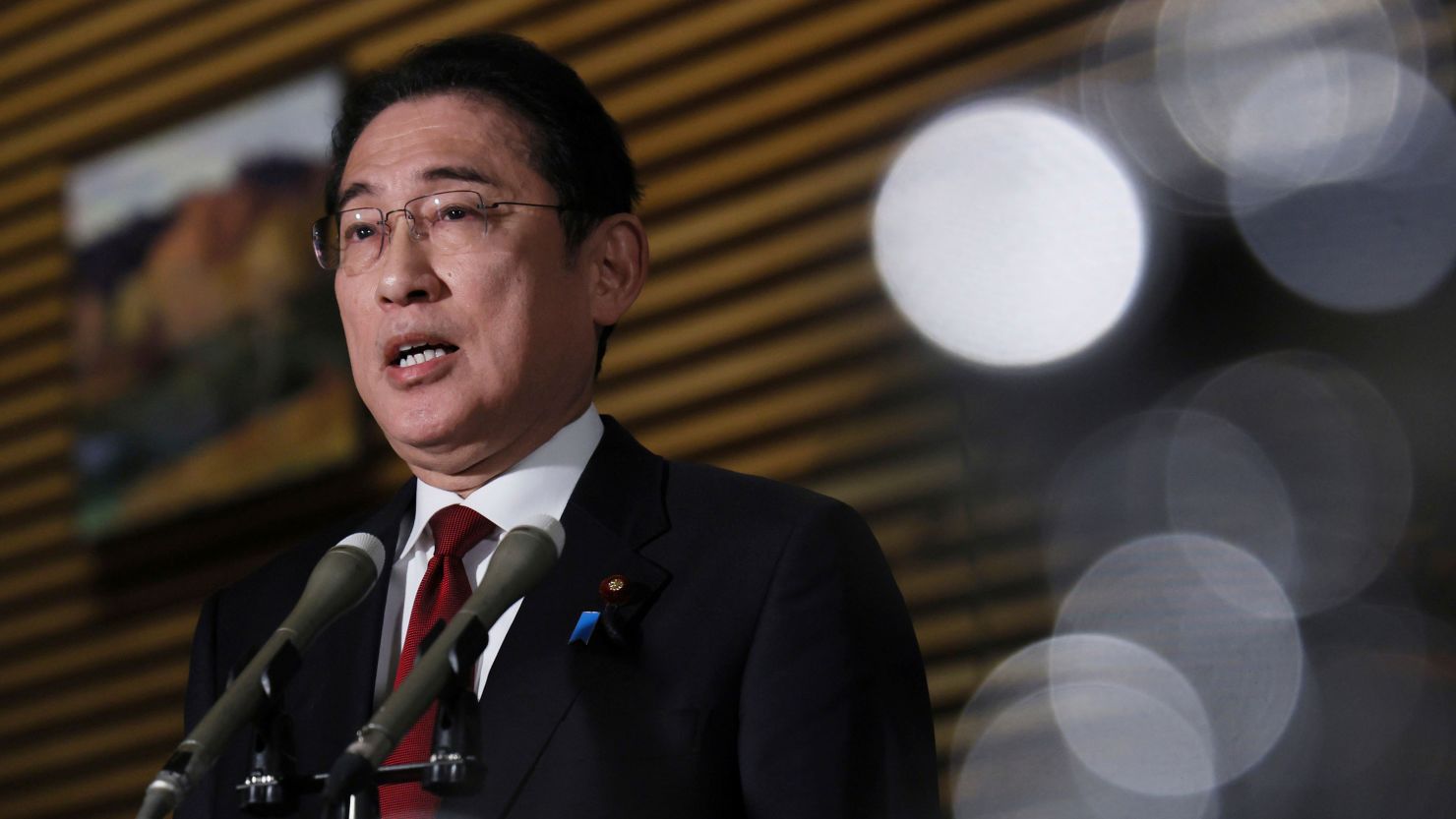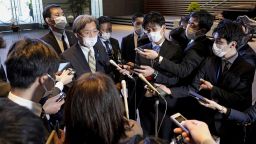Japan’s ruling Liberal Democratic Party is facing its biggest scandal in decades, involving millions of dollars in undocumented political funds.
Two of the most influential factions in the LDP, which has held power almost continuously since its founding in 1955, have been accused of failing to properly declare their income and expenditure, and, in some instances, allegedly rerouting political funds to lawmakers as kickbacks.
Tokyo prosecutors on Tuesday sent more than a dozen investigators to search the offices of the Abe and Nikai factions of the party.
The Abe faction, previously led by late former Prime Minister Shinzo Abe, is suspected of failing to declare up to 500 million yen ($3.5 million) over five years, according to public broadcaster NHK.
The Nikai faction allegedly failed to report donations of more than 100 million yen ($690,000).
The failures could amount to a breach of the country’s political funds control law, NHK reported.
Citing sources, the public broadcaster said the two factions had allegedly paid kickbacks to some of their member lawmakers from the proceeds of fundraising sales that were not properly recorded.
Chief Cabinet Secretary Yoshimasa Hayashi told a recent news conference that Prime Minister Fumio Kishida would “take the necessary measures” to ensure accountability.
“The government will do its utmost to address domestic and foreign policy issues and produce results one by one so that there will be no delays in national politics,” he said.
In a bid to contain the damage, Kishida has replaced four cabinet ministers, though the latest polls suggest the move has done little to restore public support.
A survey by the Mainichi Shimbun newspaper found disapproval levels for the cabinet were at 79%, the highest since the monthly poll began in 1947.
Other polls painted a similar picture.
“According to NHK data, the approval rating for the Kishida administration has fallen sharply to 23%, marking the lowest level since 2012,” said Professor Masaru Nishikawa from Tsuda University in Tokyo. “This scandal is likely to significantly impact the cabinet.”
While Japan ranked 18th of 180 countries in the Corruption Perceptions Index 2022 by Transparency International, financial scandals involving government members are not uncommon in the country. Another high-profile scandal, which cast a shadow on the country’s governance in the late 1980s, involved politicians receiving shares and favors from the subsidiary of a human resources company.
Even so, this particular scandal “seems to stand out for the amounts of money involved and the way the kickbacks seem to have been so systemic and routine,” according to adjunct assistant professor Paul Nadeau, who specializes in Japanese politics at Temple University’s Tokyo campus.
It also stood out, he said, because the officials involved were not just backbenchers or minor players, but major names who might once have appeared destined for the highest office.
But Nadeau suggested it was too soon to gauge the impact the scandal would have on the LDP, noting the limited success of opposition parties over the years. The LDP has ruled uninterrupted, with the exception of two short stints in 1993 to 1994 and 2009 to 2012.
“The public seems to be responding with resigned anger, clearly unhappy with the scandal but not expecting or hoping for much better from their political class and with little optimism that any alternative could be much of an improvement,” he said.





